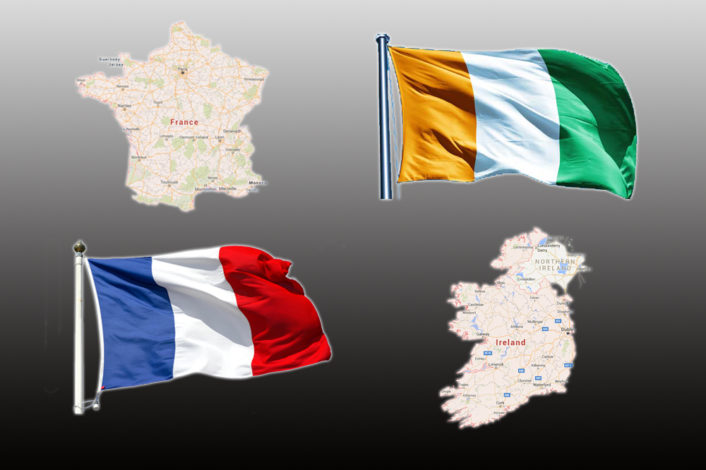RIO DE JANEIRO, BRAZIL – The European Union member countries continue to give credit to the trade agreement signed with Mercosur, but they are no longer half-hearted in binding its implementation to the government’s agenda for the Amazon and the fight against global warming.
The European sentiment is evident in a survey conducted by Folha de S.Paulo with foreign ministers of the 28 bloc members. Of these, 17 replied, eight were silent and three said they would not participate.

Of those who replied to the report, only Ireland and France are clearly threatening to suspend the agreement until there are specific measures by the government of Jair Bolsonaro (PSL) to protect the Amazon.
The other 15, with varying degrees of firmness, say they are committed to the trade agreement, but use the environmental issue as an instrument of pressure.
Germany, the bloc’s largest economy, told Folha de S.Paulo that its position has been echoed in a speech by Foreign Minister Heiko Maas on August 27th. “Environmental and climate policies are central to the assessment of the agreement [with Mercosur]. It is particularly important to reinforce this point at the present time,” said the minister.
The same veiled threat is adopted by the Netherlands. “The European Union must be prepared to use its trade relations in a clever and strategic way, to exert pressure if necessary,” said Foreign Minister Sigrid Kaag, also through advisory services.
The agreement was reached in June after 20 years of negotiations and includes economies with a combined GDP of US$22 trillion and a population of 777 million.
More than 90 percent of tariffs between the two blocs should be phased out when the trade agreement is enacted, which should still take at least two years.
However, in order to enter into force, a number of steps must be taken, the first of which is approval by the European Council, which includes the 28 countries’ governments (soon to be 27, with the United Kingdom’s imminent departure from the bloc).
The agreement will most likely require the combined support of countries representing 65 percent of the population, although the rules for approval have not yet been detailed by the parties. Secondly, the trade component of the agreement needs to go through the European Parliament.
Other matters, including environmental issues, still need to be approved by national legislatures. The four South American partners (Brazil, Argentina, Uruguay and Paraguay) should also endorse the agreement.

Some of the European Union’s smaller member states are among the most vocal in demanding Brazil’s approval of the agreement, perhaps because they know that they can be the balance of power to approve it.
With a population of 2 million and an area comparable to that of Brazil’s state of Sergipe, Slovenia said in a statement that “the success of the agreement depends on respect for common standards and principles, particularly in the area of sustainable development and the fight against climate change.
Even smaller, Luxembourg, with its 600,000 residents and one-third of greater São Paulo’s area, said in a statement that the environmental agenda is a “precondition” for the trade agreement.
“We would like to see a clear political commitment to the implementation of the Paris Agreement [on climate] and the fight against deforestation before the EU-Mercosur agreement is concluded,” said the small country’s foreign minister.
Sweden, on the other hand, is “still” in favor of the trade agreement. “At the same time, it is crucial that our trading partners contribute to the global solution to the threat of climate change,” said the Nordic Foreign Ministry.
Europeans’ distrust of Brazil’s efforts to fight global warming is not free.

They have already questioned this phenomenon, which has a broad consensus among scientists, Foreign Minister Ernesto Araújo, Bolsonaro’s sons and philosopher Olavo de Carvalho, among others close to the president.
Finland praises Brazil for having “done good work over the years in reducing deforestation. But leaving aside the complimenting tone, it mentions Brasilia’s adhesion to the Paris Agreement and adds that “the international community counts on Brazil to honor its environmental commitments”.
The Belgians make similar calls. “We really expect Brazil to respect its commitments to international agreements, such as the Paris agreement, and to act responsibly within the limits of plurilateralism with regard to climate and trade”.
The foreign ministry of France, a country which Bolsonaro has antagonized most harshly in recent days, said that Paris’ position “was clearly expressed by the President of the Republic [Emmanuel Macron] and by Chancellor [Jean-Yves Le Drian].
Macron accuses the Brazilian president of having lied about his commitment to environmental protection at the G20 summit in Japan in June.
Also sought, Ireland only reaffirmed Prime Minister Leo Varadkar’s previously position expressed that “there is no chance of us voting in favor if Brazil does not honor its environmental commitments”.
Among those who are soft on the Brazilian government are the British, for whom the implementation of the agreement should not be a real issue, given that they are to leave the bloc.
The country is governed by Boris Johnson, a conservative populist of style in many aspects similar to that of the Brazilian president, which perhaps explains the warm tone adopted.
“I certainly think it is better to talk than to intimidate with a megaphone. We have to convince them [Brazilians] to use sensible methods to reduce the problem,” said Christopher Pincher, the government’s minister for the Americas, when questioned by deputies in Parliament.
Poll with Europeans on trade agreement
– Countries that replied – Germany, Belgium, Bulgaria, Slovakia, Slovenia, Spain, Estonia, Finland, France, Netherlands, Ireland, Latvia, Lithuania, Luxembourg, Portugal, United Kingdom and Sweden
– Countries that abstained – Cyprus, Denmark and Italy
– Countries that did not reply – Austria, Croatia, Greece, Hungary, Malta, Poland, the Czech Republic and Romania
– 28 is the total number of member countries of the European Union
– 20 years was the time taken for the European bloc to close the trade agreement with Mercosur.

